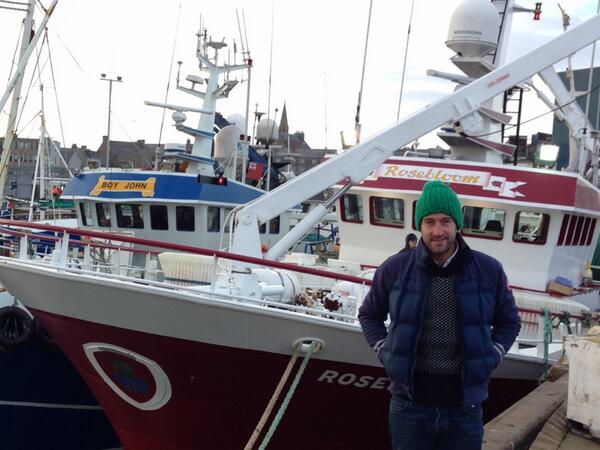Why?
Read on:
I put my legs into the huge orange suit and pulled it over my head. I stabbed at my life jacket with my enormous neoprene-gloved hands. Slowly I stepped to the water’s edge and with one hand across my chest and the other held across my face, I plunged into the deep water. I soon shot to the surface before making my way to the upturned life raft. I grabbed at one of the handles and pulled as hard as I could. The rubber raft began to list before righting itself on top of me.
By now I had been joined by eight other orange-suited folk, all clutching at the side of the raft. I made my way to the front before hoicking myself inside. Like a floundering seal, I landed on the soft floor and began hauling my colleagues aboard. Soon we were all aboard the relatively tiny raft.
We were not on some ocean, but in the Dolphin Pool in Poole harbour, Dorset, where the water was a comparatively balmy 24C (75F), as opposed to the average of 10C (50F) that we have around UK waters. I was doing a sea survival course, now a prerequisite of the Maritime and Coastguard Agency for anyone about to spend time working at sea.
Joining me on the course was an extraordinary collection of people about to pursue careers at sea. There were former soldiers off to earn a living as private security guards on vessels in the lucrative anti-piracy trade, there were offshore wind-turbine engineers, cruise ship workers, yacht crews, ferry operators and me.
The reason for my involvement is that in the New Year, while I am still digesting my turkey, I will be going up to the most northern part of Scotland to head out with the brave souls of arguably one of the most dangerous trades in UK waters: the trawlermen. I will live, work and sleep with a crew in the stormy North Atlantic in January. Even the hardened teachers and trainers on my course went green at the mere thought of it.
But before I could don my sou’wester, I had to pass the course. I learnt about flares, emergency beacons and how to survive a worst-case scenario. We were shown cheery footage of fishing trawlers sinking amid mighty oceans. Something tells me the waters off Peterhead won’t be so forgiving, or warm, as the Poole leisure centre.
And on that note, please think of all those working while we are celebrating with our families over this Christmas period
Courtesy of the trawlerphotos.co.uk web site
Now come forward a few weeks and with some of the worst winter weather in years Ben finds himself aboard the Rosebloom INS353, one of Scotland's whitefish trawlers.
Like a tiny cork on a vast ocean we are thrown around. The ship yawns and yaws with each enormous wave that pounds the side of the boat, sending a cloud of spume and spray high into the air. The sky is grey with streaks of white cloud. The sun sends a glowing orange beam low over the water, like a faraway searchlight.
 |
| Ben Fogle on the quayside in front of his home for the next 10 days. |
"I am aboard a fishing trawler in the North Sea. I thought I knew oceans and boats, but a fishing trawler in a January North Sea is another thing. The ship groans and vibrates as we bounce our way north towards Fair Isle, our hunting grounds for the next week. The crew are hardened Scottish seafarers with years of experience under their belts. And then there is me, the new boat, a “green horn” as the Americans would call me. My gear is shiny new and it appears I lost my sea legs long ago. I clutch onto anything that looks safe to hold me in place as we dip and dive like a child’s toy. The ocean is a patchwork of whitecaps and vertiginous waves. Seagulls wheel overhead in the hope of a scrap. It’s a hauntingly beautiful scene, but being part of it is, quite frankly, horrific.
They say the work of an offshore trawlerman is one of the hardest and most dangerous in the British Isles, and after just a few days aboard I can already see why. I am homesick and long for dry land. Maybe time has softened me or perhaps this really is a job for the few hardy souls for whom fishing is in their blood. Many of the crew first went to sea when they were just 15.
It is hoped that the fortunes of Scottish trawlermen will change. After three years, MEPs have signed off on reforms to the Common Fisheries Policy. Trawlermen have been promised grants for new nets and equipment to catch non-endangered fish.
My stomach is lurching and my head spinning. I have a headache and there is no rest. Haul, gut, tea, haul, gut, tea. This is my life and will be my life for the next week, me and the seven crew aboard our tiny trawler, pounded by the worst January storms in years."
Ben Fogle































